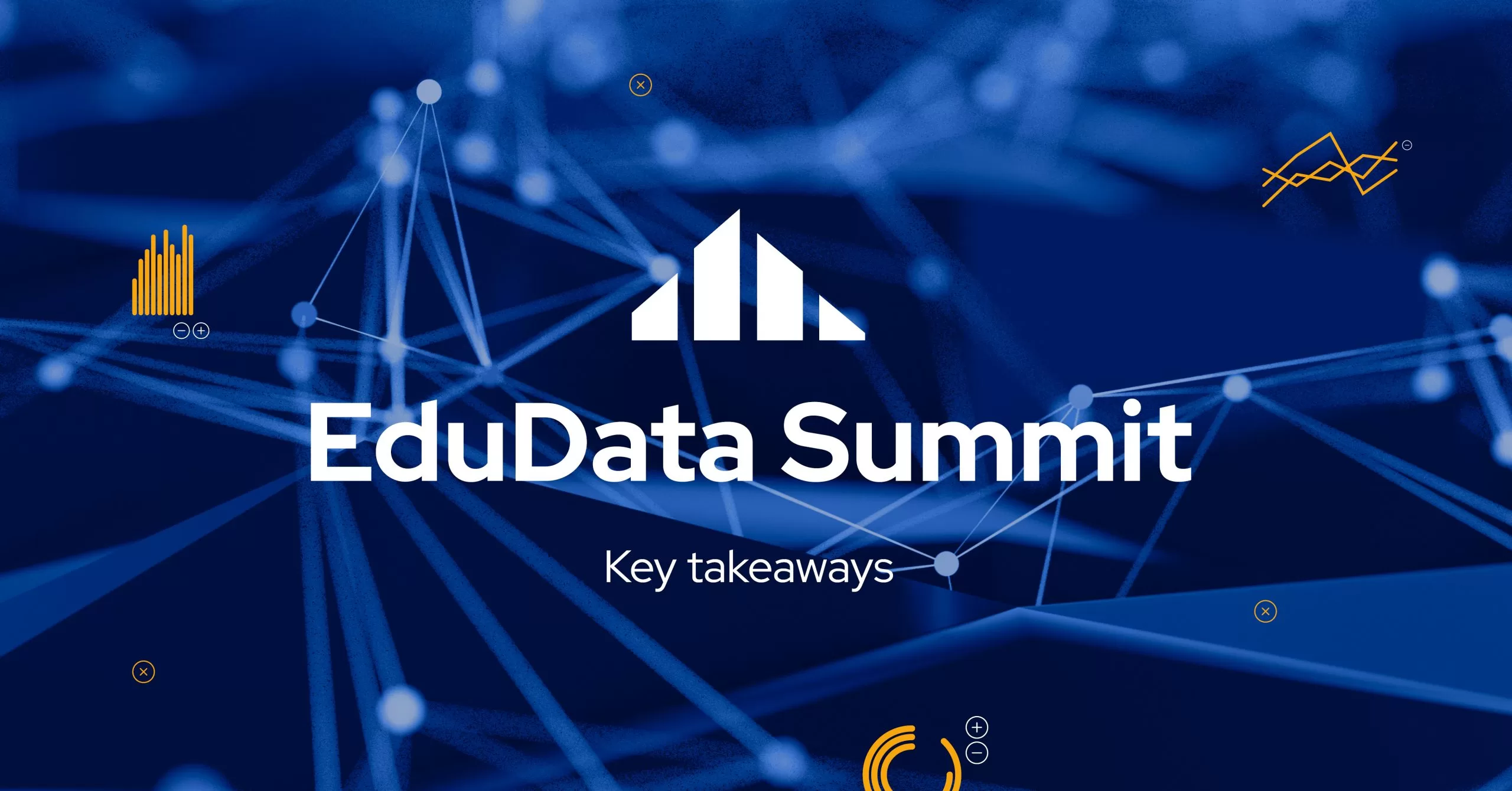
With this year’s QS EduData Summit now complete, we reflect on what we learnt about the role data can play in higher education and life-long learning:
This year, the QS EduData Summit returned in hybrid form – with delegates joining both online and, for the first time since 2019, in person. Hosted at the United Nations Delegates Dining Room in New York, and streamed live at the same time, data experts from across the globe met to discuss the role data can play in creating sustainable and inclusive life-long learning.
It’s not too late to catch up on the fascinating discussions and talks that occurred at the summit as all sessions are available on demand. Register today to watch all sessions on demand
In the meantime, read on to discover three key takeaways from the event:
1. Key trends are emerging around the use of artificial intelligence in higher education 
At this year’s QS EduData Summit, Ria Cheruvu, AI Ethics Lead Architect at the Intel Network and Edge engineering group, shone a spotlight on the various ways higher education institutions are beginning to use AI to improve the learning experience. While still in its early phases of implementation, AI systems today are currently being used to provide automatic feedback on students’ homework, build personalised learning pathways through self-regulation and goal structuring, increase the efficiency of information and resource retrieval, and to increase the inclusivity and accessibility of the learning experience.
According to Cheruvu, one component that runs throughout the use of AI in higher education is that it’s predominantly human centered: “This is really around putting teachers, students and other stakeholders that are relevant for education at the center of the development of AI systems”.
She went onto draw a connection between human-centered AI and motivation: “There is research currently being done that shows how, due to the pandemic, motivation to do well in courses is a major challenge, regardless of race…”
She continued:
“Human-centered AI may be able to bring the fun back here and help provide some motivation when it comes to goal structuring, completing assignments and essentially being able to learn and improve certain skill sets”.
2. Data exposes demand for life-long learning and identifies the skills most sought-after
According to John Solomon, Vice President and General Manager of Chrome OS at Google: “Third-party data collected indicates that around 50% of the workforce is going to effectively need upskilling or re-tooling in this decade that we’re in now.”
He continued: “There used to be these three stages of education and then you went to work, which was just about experience, but what we’re seeing now is a tremendous number of searches looking for course materials to re-tool.”
Not only does this data available reveal a collective desire, and at times necessity, for life-long learning, but it also reveals the skills that are most in demand.
According to Solomon, it is, in fact, the Massive Open Online Courses (MOOCS) that teach data-based skills, including analytics, big data, and machine learning, that get tremendous interest and appear on the most searches “because people are identifying that this is where the opportunity lies and are realising: ‘I’ve got to do this’.”
To Solomon, if these courses remain accessible and inclusive to all, they hold enormous potential:
“You have people mid-career changing direction and learning a whole set of skills which is an amazing potential we have especially as people live longer.”
3. Industry-institution collaboration is a critical, but not the only, key to developing graduates who can have a meaningful impact on society
Dawn Freshwater, Vice-Chancellor at the University of Auckland, highlighted the importance of integrating industry experience into the curriculum in the journey to create employment-ready graduates – something that universities are already acutely aware of: “Proactively upgrading skills and inquiring about new ones is all of our business… but what we do know from a university perspective is that expectations of what a university education should be are changing – and that includes more opportunities for internships.”
However, while it’s important for students to have the opportunity to work within industry – such as internships at a government agency or not-for-profit, so that they develop relevant industry-specific skills – Freshwater does not believe we should not be fixated only on meeting employer needs. Universities must also help to build graduates that will be a positive contribution to society.
For example, when it comes to the data-skills that are so in demand within evolving industries today, she says:
“We have no shortage of people being able to work with data, and certainly we can generate more graduates that have these skills at their fingertips, but it’s also the decision-making that goes along with the data sets that we are combining in the future to create the outcomes for a better world.”
While the 2022 QS EduData Summit has ended, all sessions can be found on-demand.




